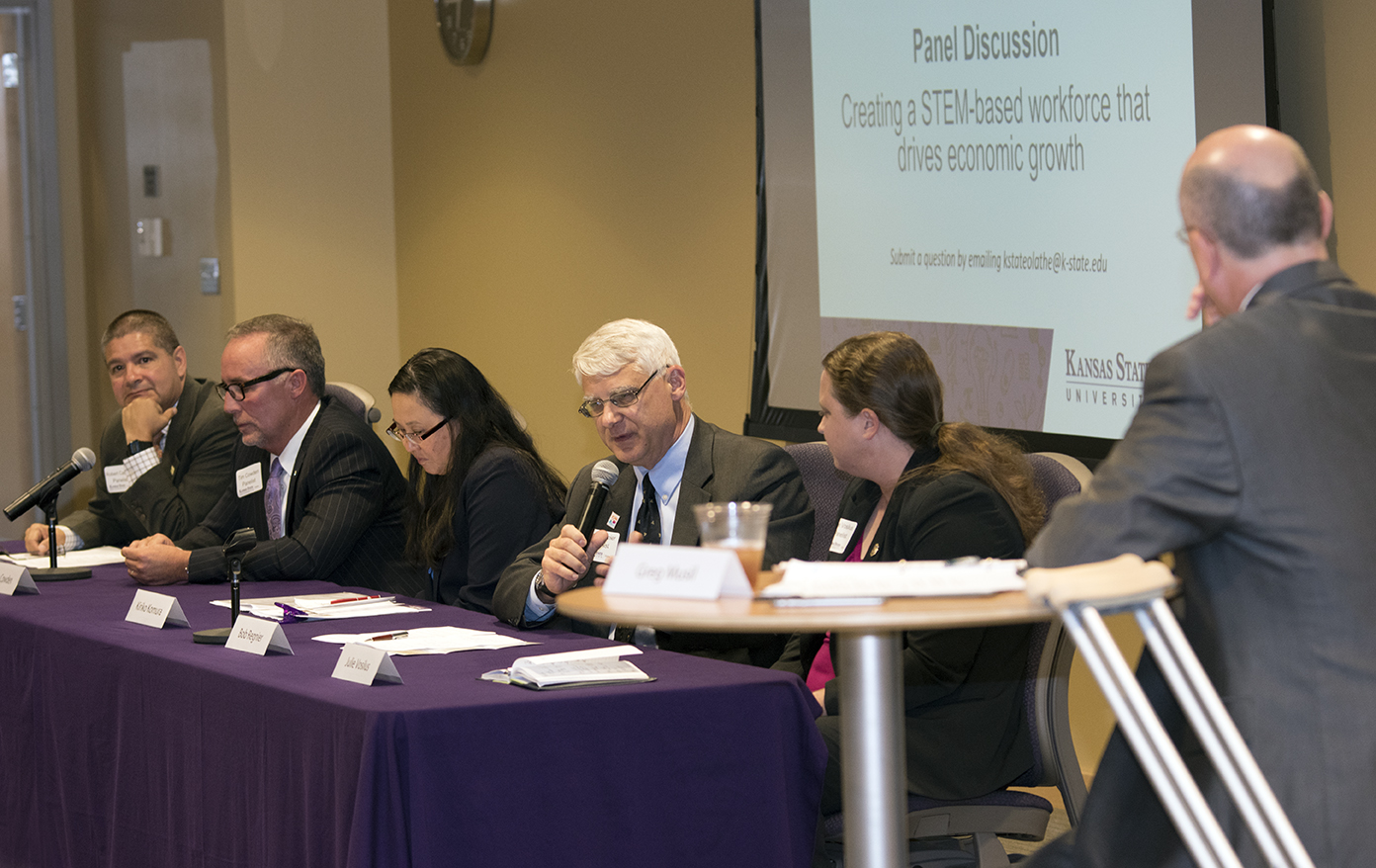Expert panel discusses region's workforce talent, growth at recent academic event
Friday, Sept. 23, 2016

Panelists discuss the talent shift in Greater Kansas City's workforce as employees begin to retire from leadership positions without younger skilled employees to replace them.
OLATHE — On Sept. 13, Kansas State University Olathe hosted 102 people at "Expanding Greater Kansas City's Potential: An Introduction to the Professional Science Master's Degree." The event marked the formal introduction to the campus' Professional Science Master in Applied Science and Technology degree.
K-State Olathe designed the degree to help meet the region's need for more highly skilled professionals in science, technology, engineering and mathematics — or STEM — fields. It fuses advanced scientific knowledge in the STEM fields with professional skills and hands-on expertise that helps students advance to leadership roles in an organization.
The event consisted of networking and information booths about the academic programs at K-State Olathe, capped by a discussion panel of industry leaders who spoke about how creating a STEM-based workforce in Greater Kansas City would drive economic growth.
The panel consisted of Robert Casillas, vice president of global health and security at MRI Global; Tim Cowden, president and CEO of the Kansas City Area Development Council; Kiriko Komura, administrative director of the Professional Science Master's National Office; Bob Regnier, president of Bank of Blue Valley; and Julie Vosilus, state liaison of the U.S. Food and Drug Administration. Greg Musil, partner at Douthit Frets Rouse Gentile and Rhodes LLC, moderated the panel.

Panelists discussed leadership needs in companies and the region; the growing skills gap companies are seeing in younger employees; the growth of Professional Science Master programs throughout the U.S.; and transition of talent that Greater Kansas City is experiencing.
"There is a turnover between people who are retiring from leadership positions and the lack of talent ready to assume leadership positions because they lack the soft skills," Cowden said. "The largest challenge in our workforce is replacing the talent of retirees with equally qualified people."
The workforce's education and soft skills also factor into the region's ability to grow by recruiting new business and industries to Greater Kansas City, he said.
"The first and last question we always get when marketing to potential companies is they want to know how we are going to help them identify, hire, ramp up and sustain operations long-term," Cowden said. "Everything we do ties back to talent. We have to make sure we have these opportunities in the educational programs in the area. We want them to say that they will come to Kansas City because there are educational programs here that will help them advance their career and that there are jobs here."
Panelists stated that K-State Olathe's PSM degree program is positioned to help the region shrink the emerging talent gap.
"The academic system for scientists still doesn't have an interdisciplinary process in which the scientists can learn business, group dynamics, interpersonal skills, project management skills, etc., that are key to advancement," Regnier said. "Those are the keys to being viewed as a team player and being of value to an organization. That is at the foundation of this PSM degree and puts one at an advantage when seeking employment or looking to advance in your current profession."
For more information about the PSM degree at K-State Olathe, visit
olathe.k-state.edu/psm.